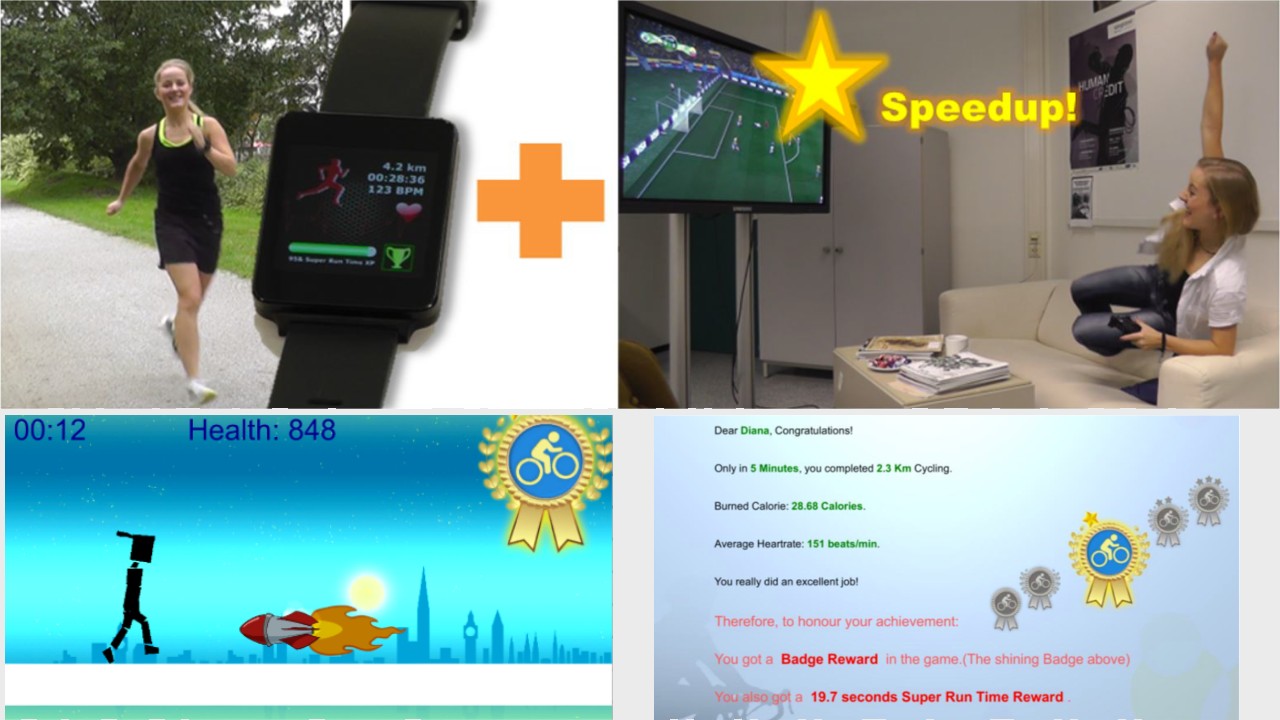Work hard, play hard: How linking rewards in games to prior exercise performance improves motivation and exercise intensity

Abstract
The concept of providing power-ups and other rewards to players in sedentary gaming sessions based on prior engagement in beneficial activities, such as exercising, has recently been explored under the term pervasive accumulated context exergames (PACE). Such games have less special requirements and may appeal to a broader audience than regular exergames. However, so far, little is known about the motivational potential and the impact on the targeted beneficial outcomes. To advance research on the potential of asynchronously linking physical exercises to games, we provide a discussion of related work and present a design space for further systematic exploration. Additionally, we present a study which indicates that linked rewards in gaming after an exercise session can lead to motivational benefits and to increased physical activity, when compared to playing a game that does not include such explicitly linked rewards after an exercise session.
Key Words: Exergames, games for health, activity tracking, quantified self, player experience, motivation, fitness
Jan David Smeddinck, Marc Herrlich, Xiaoyi Wang, Guangtao Zhang, Rainer Malaka, Work hard, play hard: How linking rewards in games to prior exercise performance improves motivation and exercise intensity, Entertainment Computing, Volume 29, 2019, Pages 20-30, ISSN 1875-9521.